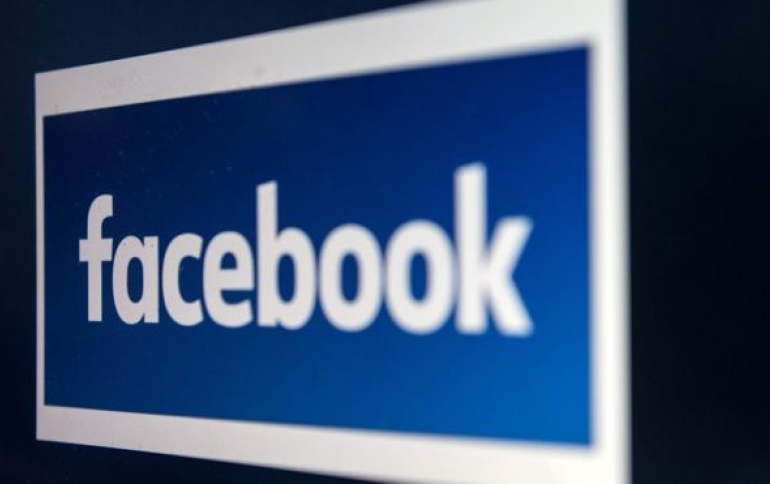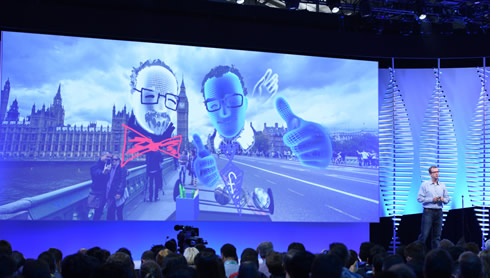
Facebook Says Artificial Intelligence Is The Future
People that have attended day two of Facebook's F8 conference watched talks that featured a look toward the future, which will be full of information, artificial intelligence and virtual reality. In the opening keynote, Facebook Chief Technology Officer Mike Schroepfer talked about Facebook's work to connect everyone and the development of new platforms like artificial intelligence and virtual reality.
Schroepfer also showed off a demo using the Oculus Rift and its touch controller that let him share a VR space with someone at Facebook’s campus. While there, they explored several 360-degree photos from London, before arriving in front of Big Ben.

That’s where Schroepfer said that he wanted a selfie with the famous clocktower, and his companion produced a virtual reality selfie stick that showed the two a reflection of their avatars along with the photo of Big Ben behind them. After shooting a few VR selfies, Schroepfer was able to upload the picture to his Facebook wall by dropping it into a virtual mailbox.
The demo shows how social networking might work in virtual reality.
Schroepfer and other keynote speakers also gave a series of updates on some of Facebook's long-term focus areas.
Facebook’s Connectivity Lab is working on a range of new technology solutions to help connect the unconnected. Facebook announced two new terrestrial systems focused on improving the speed, efficiency, and quality of internet connectivity around the world: Terragraph, a wireless system for dense urban areas; and ARIES, a proof-of-concept research project to provide wide-coverage connectivity to areas with low population density.
Facebook's Applied Machine Learning team gave attendees a glimpse into the AI backbone that powers various Facebook experiences. The team’s research efforts will enable even better ways for people to connect, with new capabilities such as language translation, image understanding that allows photos to be searched for and classified by the image context rather than tags, and classifying videos in real time to help navigate the increasingly rich content people create every day.
Virtual reality has the potential to be more social than any other platform. Facebook has recently established a Social VR team to explore how people can connect and share using today’s VR technology, as well as long-term possibilities as VR evolves into an increasingly important computing platform. Some of the challenges they’re working on involve combining a sense of presence with the ability to interact with the environment and communicating through body language as well as voice.
Over the past year, React Native has changed the way developers build iOS and Android interfaces. This year Facebook announced some new additions to the React Native ecosystem: React Native for Windows, React Native for Tizen (the operating system that runs on all Samsung SmartTVs), and a Facebook SDK for React Native, which will make it easier for developers to incorporate social features like Login, Sharing, App Analytics, and Graph APIs across platforms.





















